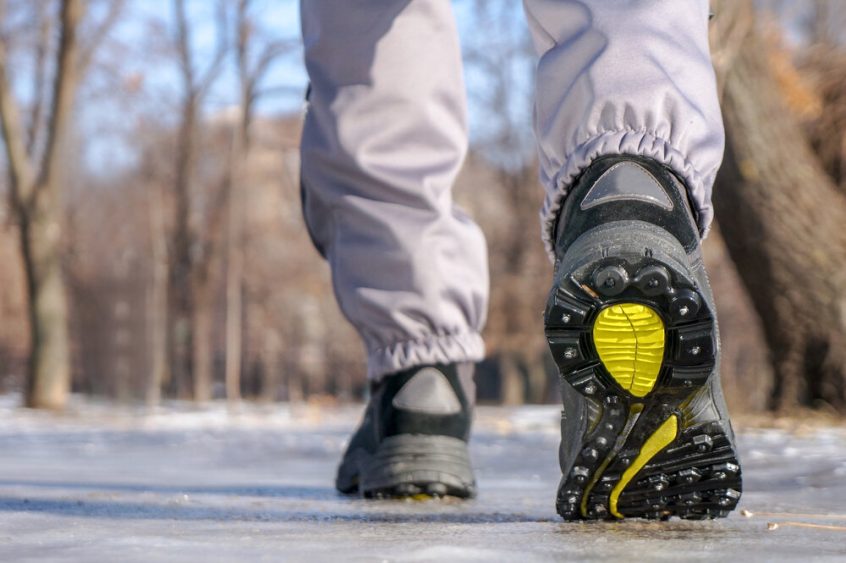After Leonard Cohen’s death, the risk of falls has become a public health concern. According to the Public Health Agency of Canada’s report on Seniors’ Fall in Canada, falls are the leading cause of injury-related hospitalizations for Canadian seniors, and more than one in four seniors fall each year.
While falls can happen anywhere inside or outside, wintery conditions increase the risk of falling on slick, unstable ground covered with ice or snow. While walking outdoors can be particularly treacherous, winter weather conditions also increase the risk of slipping indoors with wet footwear, or even losing one’s balance when walking fast to escape the cold.
Falls can result in broken or fractured bones, muscle strains, head injuries, and may lead to death. Recovering from a broken bone can be particularly difficult for seniors and the recovery process can be very lonely if confined at home in the winter months.
All told, wintertime falls are a serious concern for seniors, but these wintertime fall prevention tips can help reduce this risk:
Wear Proper Footwear
Even if only stepping outside to check the mailbox or put out the garbage, it is important to wear proper footwear with traction. Waterproof snow boots with a thick rubber sole and treads are usually recommended for harsh and unpredictable Ottawa weather. For added protection, you can buy ice grips or ice cleats at most pharmacies. These can be attached to almost any boot or shoe to improve traction.
Keep Walkways Clear
Staircases, walkways, wheelchair ramps, and driveways should be cleared of snow as soon as possible to keep the ground even and stable. For seniors who are unable to shovel, hire a snow removal service or enlist the help of adult children or neighbours. The most important thing is that snow can be reliably cleared within a few hours of snowfall. Ice and hard snow can be cleared with salt or sand. Keep a bucket or bag of deicer near the house to spread as needed. While salt will melt away snow, sand will provide additional traction.
Evaluate the Exterior of the Home
While slip and fall accidents can happen anywhere, they are more likely in and around your home, when walking from the car or going out to check the mail. Evaluate the exterior of the home and ensure that it is as safe as can be. For instance, is there a handrail down the staircase? Is it in stable condition? Is there sufficient lighting?
Healthy Bones
Seniors are at lower risk of suffering a break or fracture when they fall if they have strong, healthy bones. Start with a healthy, balanced diet rich in foods high in calcium and vitamin D. Good sources of calcium include dairy products like milk, yogurt, and cheese, leafy green vegetables like broccoli and cabbage, soy products, and nuts. Good sources of vitamin D include salmon and eggs. Talk to your doctor about vitamin D or calcium supplements to fill the gap if your diet does not supply enough.
These tips can help prevent a slip and fall accident, or reduce the risk of serious injury in the event of a fall.
For more senior health tips and care for all ages, contact Choice Homecare Family Homecare at 613-907-3191.


